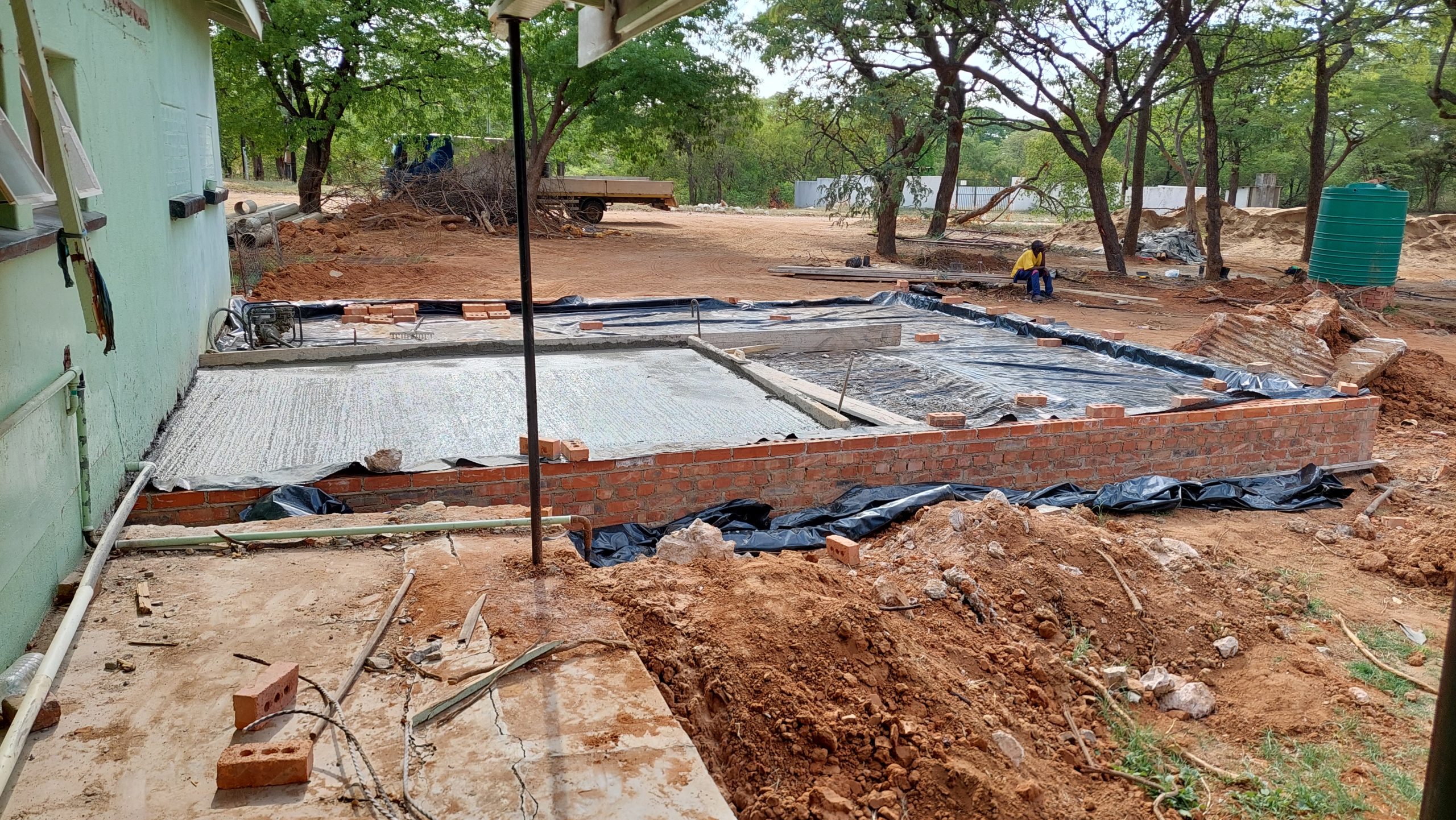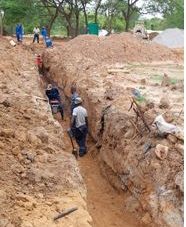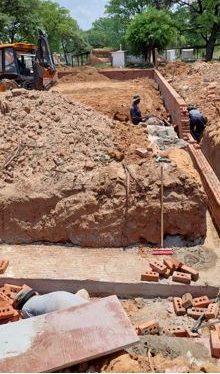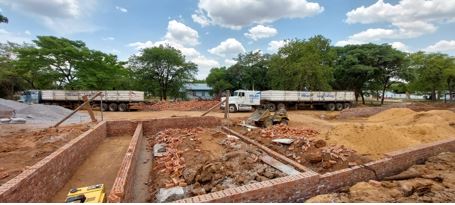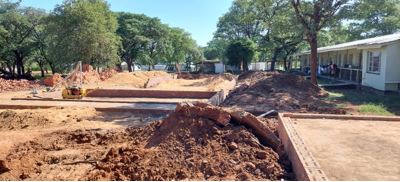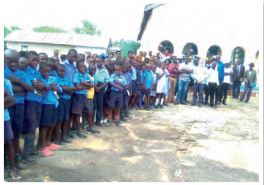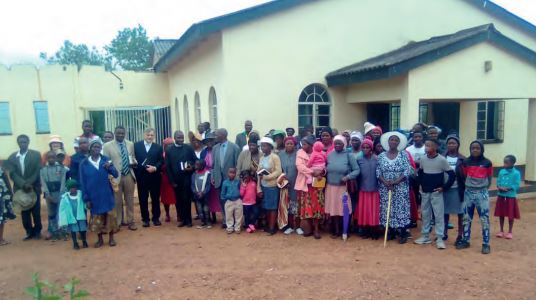It was about October or November 1952 that a popular witch-doctor went to stay in the home of a local chief at Nkayi in the Shangani reserve. The woman claimed to have been sent by some great spirit in the Matopo hills to make rain, heal the sick and kill the witches and wizards in Chief Chukuro’s territory. Her arrival in the district was reported to the District Commissioner, who gave her permission to perform her work as an official herbalist who would treat some mild ailments among the population. In the witch-doctor’s mind, as well as in the peoples’, such a permit from the District Commissioner would cover her in her divinations, although the law of the land treated such actions as a crime punishable by law. Men, women and children from all walks of life consulted Shoko, as she used to be addressed – by the term which meant a goddess.
In December a headman from Zenka district, who also was an important right-hand man of the Chief, took the witch-doctor from Nkayi to Zenka so that the local people would make use of Shoko’s services. Huge crowds of men, women and children went to see Shoko at her home about three miles from Zenka Mission and about half a mile away from my then home. Every day people of the Zenka community took provisions to the witch-doctor such as beer, goats, hens and oxen. There was so much food in the headman’s home that the crowds who patronised the place were well fed.
Once, about the middle of January 1953, after I had attended a normal church service at Zenka, where the late Rev James Fraser preached, I was sitting in my house reading my Bible and meditating on what I had heard in church. The noise of the drums, which were being beaten at the party for Shoko, made it impossible for me to continue in my duty. The beating of the drums was accompanied by singing and dancing. The shrieks from the crowd of women, anything up to 500 strong, made the impressive festival a real challenge to Christianity.
At that period of my life I had just undergone a change in my soul, which made me value the claims of God’s Word and His law, including: “Remember the Sabbath day to keep it holy”. I believe the zeal for the law of God, which was being trampled at my door, made me go to the home where the noisy, godless party was.
On arriving in the home I went straight to the owner of the kraal and asked for his permission to see his great visitor, the Shoko. At first the man said, No, because the woman was very touchy and she would be offended if I would criticise her. But I insisted that I was indeed trying to help Shoko by telling her a few things, and he then reluctantly agreed to let me see her. On turning my eyes away from the headman I almost bumped into the Shoko, who asked me, in English, “What do you want?” I told her that I wanted to speak to her. She replied, “Nonsense”, and walked away into a hut reserved for her as her private residence. I followed her into the hut. She sat down on a mat with some women attendants.
I then began to deliver my message to her, which went along these lines: “Woman, this is the Lord’s Day, the day in which God, who made heaven and earth, rested after He had created all things and creatures in heaven and earth and in the seas, and that includes you and me, poor sinners. God commanded that this day shall be used only in the worship of God and in the enjoying of Him for ever, but you have taken all these crowds of men and women from the worship of God to the worship of a poor creature like yourself. You tell people to address you as God when you are only man. You are therefore guilty of breaking the Sabbath, and the First Commandment: “Thou shalt have no other gods before Me”. Thou shalt not bow to any graven image or any likeness of anything on earth or in heaven above. You are a messenger of Satan. You are doing his work; you are therefore guilty in the sight of God. Unless you repent of your sin you will die and go to hell.”
The woman replied that she also was a Christian, in the Methodist Church; at that time she had been sent by the great spirit in the Matopo hills to heal the sick and make rain for the people; that was not a bad thing to do. She continued to say that she prayed before she did any work in her practices. Also she said that the District Commissioner had given her permission to do her good work in the Nkayi district, and who was I to stop her from her work?
In reply to her defence I said that it did not matter where she got the permission to practise her witchcraft, the point I was making was that there is a God in heaven who is greater than all the kings of the earth and who has His laws, that must be obeyed by all human beings. Permits from the Chief, the District Commissioner, Governor, King or Queen do not give licence to any man to break God’s law. The poor woman, who was human after all, broke down and wept. In conclusion I said, “Shoko, you are invited to serve the Lord Jesus Christ, to worship Him who is King of Kings and Lord of Lords”, and speaking to the whole crowd I continued, “You men, women and children of Zenka, stop worshipping this woman and calling her a goddess. Worship the Lord Jesus, who invites you all to His church to worship Him.” The atmosphere in the whole home was very tense; women wept and men groaned. I left the place and walked back to my home and continued my duties after the Sabbath services which, in short, were reading, prayer and meditation.
Two days later all the men and some women were assembled at the headman’s home, and I was summoned to appear before the crowd to explain my Sabbath action. I went to the headman’s home, where I found an angry crowd, among whom some men suggested that I should be beaten up by the Chief’s order so as to take away my madness. I must say that at that stage I got really frightened. Some young men who appeared really strong said that they had been standing behind me and were ready to knock me down, to kick me, but they had just not got round to that kind of action. I was then called every name known among Africans in Zimbabwe to disgrace and really humiliate me.
The man who led the proceedings said that by the law I was guilty of: (1) breaking into a man’s home without permission and disturbing the peace in the home, in front of a multitude of spectators; (2) insulting the Chief and District Commissioner by defying their authority in permitting the woman to practise her craft; and (3) infringing the freedom of worship by enforcing my so-called Christian views on the Shoko when she also worshipped God in her own way.
In reply to the three charges I said that I was sorry if Mr Ncube, the local headman, felt that I was looking down upon him by my going to his home and speaking to his woman visitor. I stated that I thought he had permitted me to see Shoko. The second accusation, that I had defied the authority of the Chief and the District Commissioner, was a matter I was sorry about because the Word of God teaches us to honour our rulers. I thought they had misunderstood my point, which was: the law of God was of far greater importance than the laws of men. On the third count, that of interfering with Shoko’s worship of the spirit of the ancestors and my accusing her of worshipping Satan – for that I could not apologise, as my statement was a true description of her work.
Insults were then levelled at me, while the headman, who was crying with rage, was demanding an open challenge with me, with fists, in face of the spectators. I made it clear that if he would beat me, I would not retaliate. Judgement having been postponed a few times, in about March of that year the final decision was reached, in which I was told that the law required me to pay the woman whose craft I had seriously disturbed by my accusation, by giving her an ox.
I told the Sub-Chief, before whom the case had been brought, that I could not do that on principle. The Sub-Chief claimed that he was being kind to me and therefore he was reducing the fine from an ox to a heifer, to a goat, and then to a hen as the last chance granted to me before the witch-doctor would pronounce her curses upon me and my family. I was given some days to think about it.
In the interval some of my relatives came to me suggesting that they were prepared to give Shoko their beast instead, in order to avoid the imminent doom that was sure to befall me according to the witch-doctor’s threats. I told them that they would help me far better by leaving me alone. I must say that at that time I found my father to be a real strength to me when some of our people were criticising me for not behaving like the Apostle Paul, who became all things to all men. They were saying I should have gone to the home and taken worship – that is, reading, singing, prayer and then an address in which I could have brought in the evils of witchcraft. They insisted that my method was too militant. I must say that these criticisms quite disturbed me at the time, but the Word of God, which I hoped I was defending, gave me light – in that passage when the Lord Jesus found the Jews in the temple selling and buying and He overturned the tables and took a whip and drove men and beasts out saying, “My house is the house of prayer, but ye have made it a den of thieves”.
Although there was pressure from the devil, my own heart and men, I refused to pay the witch-doctor with a beast or money, but told the Chief’s assistant in the district that I was prepared to challenge the witch-doctor in the strength of the Lord God, and that he should therefore tell her to go and pronounce all her curses against me.
In April of the same year Shoko, the great witch doctor, was taken by ambulance to Nkayi District Hospital ill with pneumonia. The large sum of money she had gathered from the people in the district as fees for treatment given for various diseases was reputed to be some thousands of pounds. It would be understandable that she was able to make so much money within so short a time, about three or four months, if we consider that she claimed that she could raise the dead from their graves, give medicines to make people rich and medicines to make people immune from the witches’ curses or enchantments. Many heathens, and even some good people, were tempted to consult Shoko, who was thought to be expert in charms and witchcraft.
After medical treatment for pneumonia, Shoko seemed to have a complete breakdown of her health; she was in and out of Nkayi hospital until finally she died in the middle of June 1953. I must say I got a shock and could not understand the ruling of providence at that moment, but surely His ways are not our ways and His thoughts are past finding out.
(Taken from the March 2005 edition of the Free Presbyterian Magazine)
* This account has been transcribed from a tape-recorded account of this incident made by Mr Ndebele in the Stornoway manse about 20 years ago.
